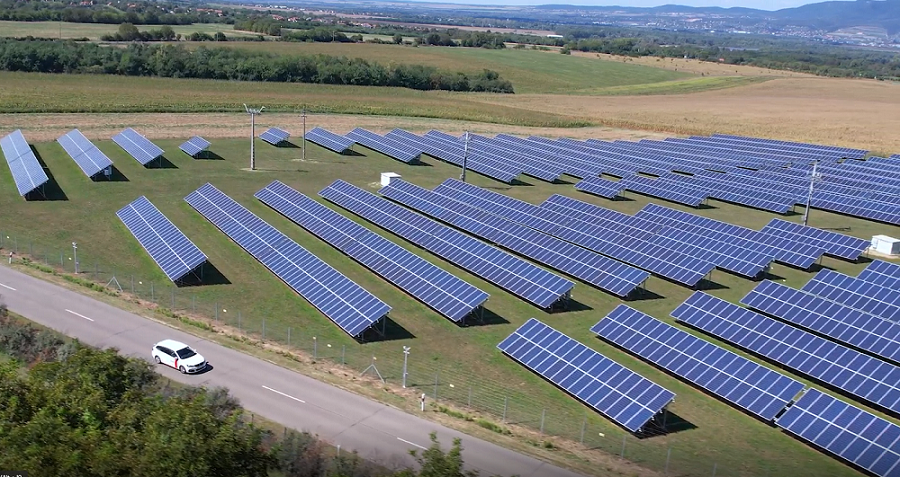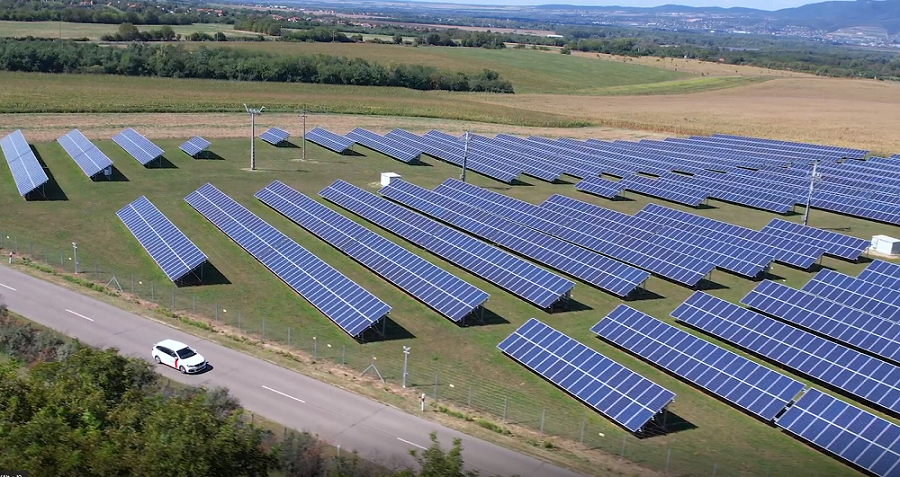MNB Sees Broadening Disinflationary Impact Till Year-end

Image by posztos / Shutterstock.com
The National Bank of Hungary (MNB) augured a continuation until the end of the year of the broadening disinflationary impact of tight monetary policy, lower commodities prices, restrained consumption, and government measures to spur competition in a report published on Thursday, according to a report by state news wire MTI.
The central bank projected CPI would fall to 7-8% by year-end and put average annual inflation at 17.9% in its quarterly Inflation Report. It forecasted average annual inflation calculated with a basket of goods and services used by pensioners at 18.5%.
Presenting the report, Andras Balatoni, a central bank director, said disinflation would slow from 2024 as the result of tax measures and factors passing out of the base period. Tax measures could add 0.8-1.1 percentage points to headline inflation next year, he added.
MNB sees average annual inflation falling to 4%-6% in 2024 and to 2.5%-3.5% in 2025.
Balatoni pointed out that vehicle fuel and market energy prices had accounted for 0.4 percentage points of the increase in the MNB's forecast for 2023 inflation and 0.5 percentage points of the rise in the forecast for 2024 CPI.
GDP could start to grow again from the third quarter, lifted by falling inflation and a low base in the farm sector, he said, noting that the impact of this year's maize harvest would show up in Q3.
MNB puts GDP for 2023 in a range of -0.5% to 0.5%. GDP growth is expected to reach 3%-4% in 2024 and 2025.
Balatoni said the structure of growth would be "more balanced" from next year as real wages increase. MNB puts private sector wage growth at 10% in 2024 and 7.5% in 2025, he added.
MNB sees a global slowdown as a downside risk for its GDP forecast, while a faster recovery of consumption and a possible exit of capital from emerging markets are upside risks for the inflation forecast, Balatoni said.
As the trade balance improves, MNB sees Hungary's current account deficit narrowing to 0.6% of GDP in 2023, from 8.2% in 2022, then moving into surplus in 2024.
MNB projects the general government deficit, relative to GDP, could reach 5.2% in 2023, over the 3.9% target in the budget act, Balatoni said. The scale of the deficit will "depend largely" on year-end measures to rein in spending, he added.
MNB sees state debt falling close to 70% of GDP by end-2023 and reaching 66% by the end of the forecast horizon.
SUPPORT THE BUDAPEST BUSINESS JOURNAL
Producing journalism that is worthy of the name is a costly business. For 27 years, the publishers, editors and reporters of the Budapest Business Journal have striven to bring you business news that works, information that you can trust, that is factual, accurate and presented without fear or favor.
Newspaper organizations across the globe have struggled to find a business model that allows them to continue to excel, without compromising their ability to perform. Most recently, some have experimented with the idea of involving their most important stakeholders, their readers.
We would like to offer that same opportunity to our readers. We would like to invite you to help us deliver the quality business journalism you require. Hit our Support the BBJ button and you can choose the how much and how often you send us your contributions.











